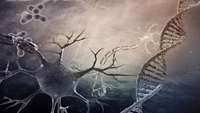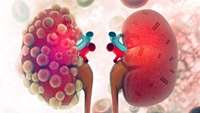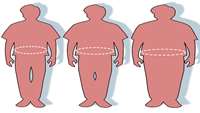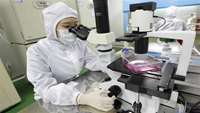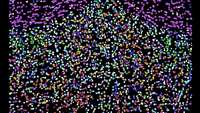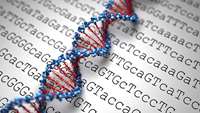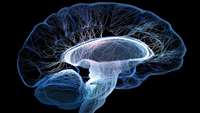New gene therapy reprograms brain glial cells into neurons
A new gene therapy can turn certain brain glial cells into functioning neurons, which in turn could help repair the brain after a stroke or during neurological disorders like Alzheimers or Parkinsons diseases.
DNA Origami Nanoparticles to Treat Acute Kidney Injury
DNA origami is a technique for building different shaped molecules out of the four standard nucleotide bases. Various forms can be constructed, such as tubes, pyramids, and cubes, and the shapes of these molecules can significantly affect their functionality. Now they’ve been shown to be useful for treating acute kidney injury (AKI).
Obesity both feeds tumors and helps immunotherapy kill cancer
A groundbreaking new study by UC Davis researchers has uncovered why obesity both fuels cancer growth and allows blockbuster new immunotherapies to work better against those same tumors.
Scientists Have Confirmed a New DNA Structure Inside Human Cells
Earlier this year, scientists identified the existence of a brand new DNA structure never before seen in living cells. Thats right, its not just the double helix.
First patient dosed in Japanese iPSC Parkinson’s trial
The first patient in a first-in-human trial assessing induced pluripotent stem cells (iPSC)-derived dopaminergic progenitors for Parkinson’s disease (PD) has been treated by researchers at the Center for iPS Cell Research and Application at Kyoto University and Kyoto University Hospital (both Japan).
Unraveling a Genetic Network Linked to Autism
Donnelly Centre researchers have uncovered a genetic network linked to autism. The findings, described in the journal Molecular Cell, will facilitate developing new therapies for this common neurological disorder.
Cellular atlas of brain region leads to discoveries
or decades, scientists have viewed the brain as a veritable black box — and now Catherine Dulac and Xiaowei Zhuang are poised to open it.
Tiny DNA modification has big impact on deadly tumors
A simple modification of a DNA base in small areas of the genome may explain why glioblastoma tumors are so deadly, researchers at Yale and the University of California-San Diego report Nov. 1 in the journal Cell.
The protein Matrin-3 determines the fate of neural stem cells in brain development
A research group from Kumamoto University, Japan has discovered a new neurogenic mechanism responsible for brain development. By applying proprietary technology to detect trace proteins in living organisms, they found that a novel protein, called Matrin-3, is responsible for determining the fate of neural stem cells.
CRISPR halts Duchenne muscular dystrophy progression in dogs
Scientists for the first time have used CRISPR gene editing to halt the progression of Duchenne muscular dystrophy (DMD) in a large mammal, according to a study by UT Southwestern that provides a strong indication that a lifesaving treatment may be in the pipeline.


